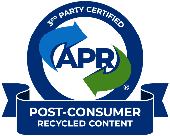PureCycle Releases Favorable Life Cycle Assessment Results for European Facility
Third-party LCA shows future European facility is expected to release fewer carbon emissions and use less energy than global virgin plastic production.
ORLANDO, Florida – PureCycle Technologies, Inc. (Nasdaq: PCT), today, released new data from a third-party baseline Life Cycle Assessment (“LCA”) study that shows the future polypropylene (“PP”) waste purification plant at the port of Antwerp in Belgium is expected to release fewer carbon emissions, use less energy and rely upon less fossil resources than global virgin plastic production.
The study was conducted by the well-known independent assurance and risk management expert, DNV, following the ISO-14040/44 LCA-framework.
Based on the estimates from PureCycle’s flagship facility in Ironton, Ohio and the energy grid in Belgium, the study found that the port of Antwerp facility will consume 86% less energy than global virgin PP production. Assessment data also indicates that the European facility is expected to reduce green-house gas emissions by 61% and reduce fossil-based resource usage by 64% when compared to virgin plastic.
“DNV’s LCA study shows that PureCycle’s future Antwerp plant, after incorporating the learnings from Ironton, should be much more carbon efficient than virgin plastic production,” said PureCycle’s VP of European Operations Wiebe Schipper. “What I also like about DNV’s work is that it identifies focus areas for us to further enhance the carbon, energy and resource efficiency of our Antwerp operations.”

In 2022, a third party LCA study conducted by Boundless for PureCycle’s Ironton, Ohio plant projected the site would use 79% less energy and have 35% lower carbon emissions than new PP plastic. The study also indicated that future PureCycle plants could further improve on these initial estimates and appears to have been confirmed by the DNV study.
PureCycle CEO Dustin Olson added, “The results of this LCA study are highly encouraging for the ongoing optimization of our recycling facilities. Having results indicating we’re continuously making improvements to the sustainability of our operations demonstrates PureCycle’s commitment to bringing a circular plastic-to-plastic solution to the world in a thoughtful way that minimizes our environmental impact.”
PureCycle will continue to analyze the findings from DNV to optimize the efficiency and sustainability of the port of Antwerp purification facility. DNV offered multiple scenarios that can help lead to even better results regarding energy efficiency, fossil-fuel consumption, and greenhouse gas emissions. The LCA-framework used by DNV also recognizes credits for the expected benefits of PureCycle’s co-products.
###
PureCycle Contact
Christian Bruey
cbruey@purecycle.com
+1 (352) 745-6120
Investor Relations Contact
Charles Place
cplace@purecycle.com
+1 (689) 233-3595
About PureCycle Technologies
PureCycle Technologies LLC., a subsidiary of PureCycle Technologies, Inc., holds a global license for the only patented solvent-driven purification recycling technology, developed by The Procter & Gamble Company (P&G), that is designed to transform polypropylene plastic waste (designated as No. 5 plastic) into a continuously renewable resource. The unique purification process removes color, odor, and other impurities from No. 5 plastic waste resulting in an ultra-pure recycled (UPR) plastic that can be recycled and reused multiple times, changing our relationship with plastic.
Visit www.purecycle.com
Forward-Looking Statements
This press release contains forward-looking statements, including statements about the outcome of any legal proceedings to which PureCycle is, or may become a party, and the financial condition, results of operations, earnings outlook and prospects of PureCycle. Forward-looking statements generally relate to future events or PureCycle’s future financial or operating performance and may refer to projections and forecasts. Forward-looking statements are often identified by future or conditional words such as “plan,” “believe,” “expect,” “anticipate,” “intend,” “outlook,” “estimate,” “forecast,” “project,” “continue,” “could,” “may,” “might,” “possible,” “potential,” “predict,” “should,” “would” and other similar words and expressions (or the negative versions of such words or expressions), but the absence of these words does not mean that a statement is not forward-looking.
The forward-looking statements are based on the current expectations of the management of PureCycle and are inherently subject to uncertainties and changes in circumstances and their potential effects and speak only as of the date of this press release. There can be no assurance that future developments will be those that have been anticipated. These forward-looking statements involve a number of risks, uncertainties or other assumptions that may cause actual results or performance to be materially different from those expressed or implied by these forward-looking statements. These risks and uncertainties include, but are not limited to, those factors described in the section entitled “Risk Factors” in each of PureCycle’s Annual Report on Form 10-K for the fiscal year ended December 31, 2022 and PureCycle’s Quarterly Reports on Form 10-Q, those discussed and identified in other public filings made with the Securities and Exchange Commission by PureCycle and the following:
• PCT's ability to obtain funding for its operations and future growth and to continue as a going concern;
• PCT's ability to meet, and to continue to meet, applicable regulatory requirements for the use of PCT’s UPR resin (as defined below) in food grade applications (including in the United States, Europe, Asia and other future international locations);
• PCT's ability to comply on an ongoing basis with the numerous regulatory requirements applicable to the UPR resin and PCT’s facilities (including in the United States, Europe, Asia and other future international locations);
• expectations and changes regarding PCT’s strategies and future financial performance, including its future business plans, expansion plans or objectives, prospective performance and opportunities and competitors, revenues, products and services, pricing, operating expenses, market trends, liquidity, cash flows and uses of cash, capital expenditures, and PCT’s ability to invest in growth initiatives;
• the ability of PCT’s first commercial-scale recycling facility in Lawrence County, Ohio (the “Ironton Facility”) to be appropriately certified by Leidos (as defined below), following certain performance and other tests, and commence full-scale commercial operations in a timely and cost-effective manner;
• PCT’s ability to meet, and to continue to meet, the requirements imposed upon it and its subsidiaries by the funding for its operations, including the funding for the Ironton Facility;
• PCT’s ability to complete the necessary funding with respect to, and complete the construction of, (i) its first U.S. multi-line facility, located in Augusta, Georgia (the “Augusta Facility”); (ii) its first commercial-scale European plant located in Antwerp, Belgium and (iii) its first commercial-scale Asian plant located in Ulsan, South Korea, in a timely and cost-effective manner;
• PCT’s ability to sort and process polypropylene plastic waste at its plastic waste prep (“Feed PreP”) facilities;
• PCT’s ability to maintain exclusivity under the Procter & Gamble Company (“P&G”) license (as described below);
• the implementation, market acceptance and success of PCT’s business model and growth strategy;
• the success or profitability of PCT’s offtake arrangements;
• the ability to source feedstock with a high polypropylene content at a reasonable cost;
• PCT’s future capital requirements and sources and uses of cash;
• developments and projections relating to PCT’s competitors and industry;
• the outcome of any legal or regulatory proceedings to which PCT is, or may become, a party including the securities class action case;
• geopolitical risk and changes in applicable laws or regulations;
• the possibility that PCT may be adversely affected by other economic, business, and/or competitive factors, including rising interest rates, availability of capital, economic cycles, and other macro-economic impacts;
• turnover or increases in employees and employee-related costs;
• changes in the prices and availability of labor (including labor shortages), transportation and materials, including significant inflation, supply chain conditions and its related impact on energy and raw materials, and PCT’s ability to obtain them in a timely and cost-effective manner;
• any business disruptions due to political or economic instability, pandemics, armed hostilities (including the ongoing conflict between Russia and Ukraine and the current situation in Israel);
• the potential impact of climate change on PCT, including physical and transition risks, higher regulatory and compliance costs, reputational risks, and availability of capital on attractive terms; and
• operational risk.






-1.png)
